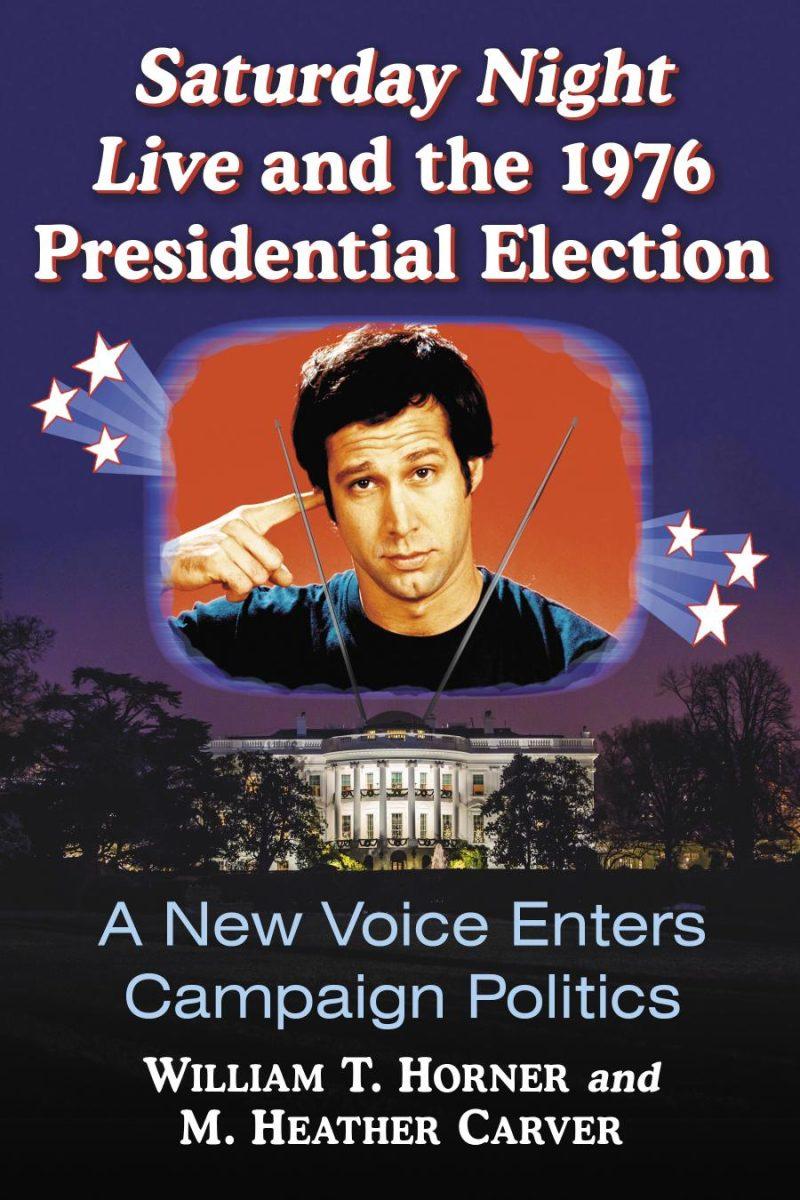
Married couple Dr. Heather Carver and Dr. William Horner seem to have created what could only be called a work of fate.
Carver, chair of the theater department, and Horner, director of the undergraduate political science department, have worked at MU for 17 years. They will come out with their first joint academic project, a book titled “Saturday Night Live and the 1976 Presidential Election: A New Voice Enters Campaign Politics,” in November.
Horner started the project in the wake of the 2008 presidential election after coming across a post on the internet asserting that SNL’s portrayal of Gerald Ford lost him the 1976 election.
“That’s an interesting thing to say,” Horner said. “I’m a big fan of SNL just through life, and I thought that would be an interesting project to work on … It turned into doing a lot of interviews of SNL cast, writers, people from the Ford administration and people from the Jimmy Carter administration.”
Carver joined later, when Horner realized the book needed performance theory and insight into the role of theater in the show.
The book argues that SNL influenced the 1976 election more than any other. At that time, audiences reached upward of 30 million people, which, according to Horner, would be astronomical today.
“Now, they’re excited beyond belief to have 10 million people watching SNL,” Horner said. “When Sarah Palin was on, they hit 13 million for that episode. The peak was when Palin and [Tina] Fey were on together. But that’s half of what the show would regularly get.”
The large SNL audiences and the closeness of the race between Carter and Ford are reasons Horner believed SNL had such a significant impact on the election.
“About a million votes decided the outcome of the election,” Horner said. “It went back and forth all the way up until the end. Ford had come so close the administration was writing a victory speech. They really thought they’d pulled it out.”
Horner said his theory has been shared by multiple people surrounding the Ford administration, including Ford’s press secretary Ron Nessen.
“[Nessen] hosted SNL in 1976 in April,” Horner said. “So I interviewed him. He wrote an autobiography, and in his autobiography, which came out right after he was the press secretary, he said he thought SNL cost them the election because of how negatively they portrayed Gerald Ford, and he denies that now when we interview him. He says that it’s a ridiculous assumption.”
Carver and Horner agreed that “it’s obvious” the SNL cast favored Carter over Ford, and the cast’s sketches portrayed Ford as clumsy. For example, Ford was spoofed falling down the steps of a plane, hitting people with golf balls and falling down while skiing. After that, even though Ford was an All-American football player in college, he was generally considered clumsy and stupid, Horner said.
“If you’re faced with two guys and you portray one as a little bit disingenuous, maybe willing to say anything to get elected, and the other one as a fool, it’s clear who they think would be a better president,” Horner said.
Carver argues that SNL is historically anti-establishment because it’s live, which makes the actors capable of getting away with anything.
“This isn’t something that’s being manipulated later,” Carver said. “Right now, if you’re watching, we’re taking digs at you if you’re in the establishment.”
In terms of how SNL is affecting politics today, both Horner and Carver reference Tina Fey’s portrayal of John McCain’s vice presidential candidate Sarah Palin in the 2008 election. Fey, with Amy Poehler, spoofed an interview Palin had with then-CBS news anchor Katie Couric.
“People believed that it was an exact transcript,” Carver said. “And it wasn’t. But the show isn’t going to say it’s not. They were doing their job in showing that this is what it looked, sounded and felt like, but it wasn’t the direct transcript.”
Horner said this is why SNL has a significant impact on how people perceive politics.
“If you watch that sketch with Tina Fey and Sarah Palin and Amy Poehler and Katie Couric, there is that real interview, it does exist,” Horner said. “And people think it’s true that it’s a direct transcript. And that’s why SNL matters. It helps people create these shortcuts in their brain of what these figures are like. And once that’s established, it’s really hard to ever break free of it.”
_Edited by Olivia Garrett | [email protected]_